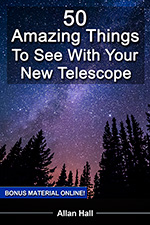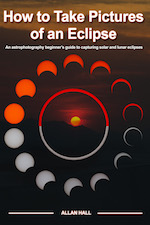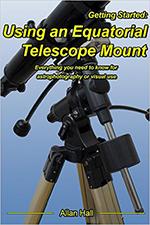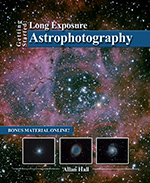Here it is, Getting Started: Budget Astrophotography, finally! After almost a year the astrophotography book tons of people suggested I write is done and I had an absolute blast making it happen. Sure it was a lot of work, but it was also a ton of fun testing out theories and building projects. After all, if I can’t make sure it works I certainly don’t want to suggest you try it.
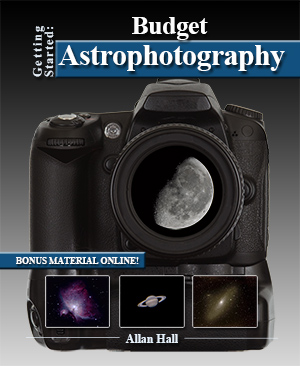

Here is the description as it appears on Amazon:
Allan Hall makes learning how to photograph the night sky easy with his new book Getting Started: Budget Astrophotography. In this guide, you will learn the fundamentals of astrophotography – what it is, how it’s done, and how to do it yourself. Getting Started: Budget Astrophotography is divided into these three sections in order to provide a comprehensive overview of the basics of astrophotography.
Understanding
The first section of Hall’s guide focuses on understanding astrophotography. Amateur and professional stargazers know that one of the most important things to consider when viewing the heavens is light pollution. Light pollution is exactly what it sounds like – too much light in our environments makes it more difficult to get a good look at planets, stars, and other celestial bodies. If you want to get the best view and photo possible, you must find a location that has little light. This makes a huge difference. In addition to finding a good location for viewing and shooting, you will learn about camera basics, including how to mount a camera and focus a lens. Beyond that, you will read about various types of telescopes and what they do.
Doing
The title of the second segment of this reference guide speaks for itself. Once you’ve learned the fundamentals of location, cameras, and telescopes, it’s time to put your knowledge to use. This section discusses how to find targets, as in how to find objects of interest to shoot. From capturing images to camera and exposure settings, you will learn how to make the most of your instruments and location by taking a great shot. This section also discusses making videos, image stacking, and image editing, an important aspect of astrophotography. Many of the celestial shots we see are time-lapse or edited in some way (to improve clarity and reduce visual “noise”). While it may sound difficult, this reference guide simplifies the processes by providing step-by-step instructions.
Building
For the handy home astrophotographer, this section includes information about do-it-yourself projects. From modifying your equipment (for example, improving your focus capabilities, modifying a webcam for astrophotography, and even adapting your laptop screen to function in the dark) to building add-ons, you’ll learn how to enhance your experience in your own home. Hall provides information about creating glass solar filters for your cameras and even making your own dew heaters.
Getting Started: Budget Astrophotography is a great reference guide for beginners and amateur astrophotographers. If you have an interest in astronomy and want to capture what you’ve viewed through a telescope, doing so is possible from your own home. Hall’s comprehensive guide also provides ideas about where to start (as in, what targets are best to photograph), where to find more information about astrophotography, and even a glossary of terms. Indulge your hobby and learn how to improve with Getting Started: Budget Astrophotography.
Share this post!





